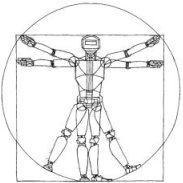Robotics: Science and Systems XI
Two-Stage Focused Inference for Resource-Constrained Collision-Free Navigation
Beipeng Mu, Ali-akbar Agha-mohammadi, Liam Paull, Matthew Graham, Jonathan How, John LeonardAbstract:
Long-term operations of resource-constrained robots typically require hard decisions be made about which data to process and/or retain. The question then arises of how to choose which data is most useful to keep to achieve the task at hand. As spacial scale grows, the size of the map will grow without bound, and as temporal scale grows, the number of measurements will grow without bound. In this work, we present the first known approach to tackle both of these issues. The approach has two stages. First, a subset of the variables (focused variables) is selected that are most useful for a particular task. Second, a task-agnostic and principled method (focused inference) is proposed to select a subset of the measurements that maximizes the information over the focused variables. The approach is then applied to the specific task of robot navigation in an obstacle-laden environment. A landmark selection method is proposed to minimize the probability of collision and then select the set of measurements that best localizes those landmarks. It is shown that the two-stage approach outperforms both only selecting measurement and only selecting landmarks in terms of minimizing the probability of collision. The performance improvement is validated through detailed simulation and real experiments on a Pioneer robot.
Bibtex:
@INPROCEEDINGS{Mu-RSS-15,
AUTHOR = {Beipeng Mu AND Ali-akbar Agha-mohammadi AND Liam Paull AND Matthew Graham AND Jonathan How AND John Leonard},
TITLE = {Two-Stage Focused Inference for Resource-Constrained Collision-Free Navigation},
BOOKTITLE = {Proceedings of Robotics: Science and Systems},
YEAR = {2015},
ADDRESS = {Rome, Italy},
MONTH = {July},
DOI = {10.15607/RSS.2015.XI.004}
}
